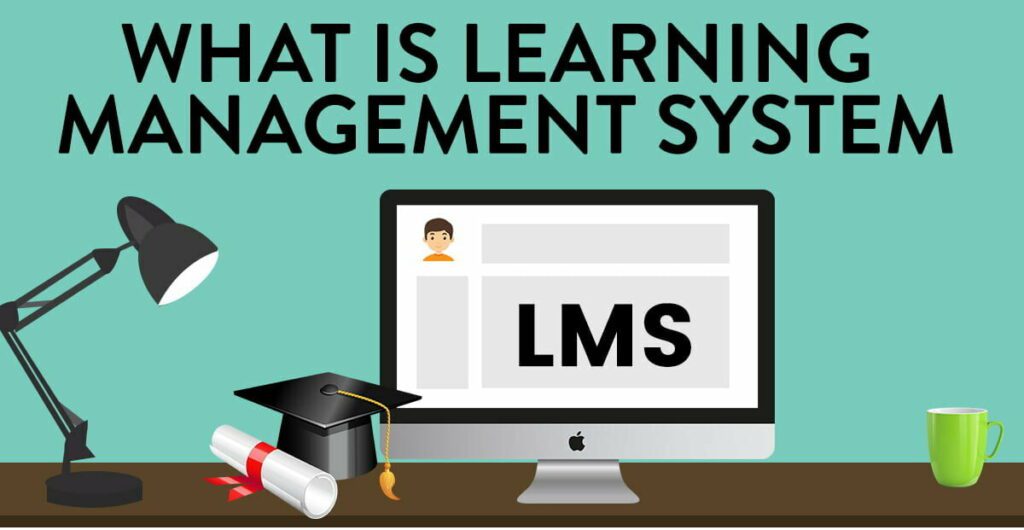Everything You Need to Find Out About Selecting a Knowing Administration System
Picking a proper Understanding Monitoring System (LMS) is a critical choice that can considerably affect the efficiency of your training programs. It involves an extensive understanding of both your organizational demands and the essential features offered in numerous LMS alternatives.
Comprehending Understanding Administration Equipment
A considerable variety of organizations today are identifying the worth of Understanding Management Equipment (LMS) as necessary devices for reliable training and education. An LMS is a software program application designed to assist in the management, paperwork, tracking, reporting, and delivery of academic training courses or training programs. By combining training campaigns right into a central platform, companies can simplify processes and improve discovering experiences.
LMS systems support different finding out approaches, consisting of e-learning, combined understanding, and instructor-led training. Their adaptability makes them ideal for varied sectors, from business training to academic establishments. Via using LMS, organizations can provide constant web content, making certain that learners and employees have access to the required resources despite place.
In addition, LMS solutions frequently integrate functions that allow analytics and reporting, enabling organizations to evaluate the efficiency of their training programs. This data-driven technique equips organizations to make informed decisions concerning curriculum adjustments and resource allocation - LMS Singapore. Eventually, the fostering of an LMS can bring about raised student involvement, improved retention prices, and improved general performance, declaring its standing as an essential element of contemporary educational methods
Key Features to Take Into Consideration
When selecting a Knowing Management System, companies must prioritize specific attributes that line up with their training goals and user demands. User-friendliness is necessary; a system with an intuitive interface can boost learner engagement and minimize the time required for training managers.
One more crucial attribute is robust coverage and analytics abilities, allowing companies to track learner progression, completion prices, and assessment results. This information is indispensable for refining training programs and demonstrating ROI.
Furthermore, mobile compatibility is increasingly vital as learners prefer accessing web content on various gadgets. A receptive LMS guarantees that training is available anytime, anywhere, therefore enhancing flexibility.
Content monitoring performance is additionally important; the LMS should sustain various content types, consisting of videos, quizzes, and interactive modules, to accommodate various knowing designs.

Evaluating Your Company's Requirements
Recognizing an organization's special training needs is important for picking the ideal Learning Administration System (LMS) To start this assessment, organizations must perform an extensive analysis of their present training landscape, including existing programs, participant demographics, and certain learning objectives. This process helps highlight staminas and voids in existing offerings, guiding the selection of an LMS that aligns with organizational objectives.
In addition, think about the sorts of web content to be supplied, such as e-learning components, conformity training, or combined discovering experiences. Recognizing the recommended delivery methods and learning styles of employees is crucial for reliable training engagement. Furthermore, organizations should evaluate their technical framework, making sure compatibility with the potential LMS.
It is likewise important to include vital stakeholders in this analysis procedure. Engaging trainers, IT staff, and end-users can give beneficial understandings right into their choices and demands. Furthermore, establish clear metrics for success, such as student satisfaction and knowledge retention, to aid determine the effectiveness of the picked LMS. By diligently examining these factors, companies can make educated decisions, guaranteeing their selected LMS effectively fulfills their training needs and enhances total performance.
Contrasting Various LMS Options
Various Learning Administration System (LMS) alternatives are available in the marketplace, each offering unique features and performances that satisfy diverse business needs. When comparing LMS alternatives, organizations ought to take into consideration several essential elements. Initially, the interface and experience are paramount; an instinctive layout can substantially influence user interaction and adoption prices.
Second, review the scalability of the LMS. As your company expands, the system must accommodate an increasing variety of customers and web content without compromising performance. Third, integration abilities are crucial; the LMS should seamlessly link with existing devices, such as human resources systems, CRM systems, and material collections, to improve performance.
Moreover, consider the personalization choices offered. An LMS that enables tailored branding, course creation, and reporting can better line up with particular organizational goals. Additionally, rates models differ commonly, so it is necessary to evaluate the total price of possession, consisting of licensing charges, upkeep, and support.

Application and Assistance Methods
Effectively carrying out an Understanding Monitoring System (LMS) needs a critical strategy that includes complete preparation and continuous support. Begin by establishing clear goals that align with your company's instructional goals. Engage key stakeholders and form a committed execution group to facilitate interaction and partnership throughout the process.
Next, pick a phased rollout method to reduce interruption. Begin with a pilot program involving a smaller sized individual group, permitting real-time responses and modifications. Offer extensive training to ensure customers are comfortable with the LMS capabilities and features. Canvas Singapore. This action is essential for cultivating user fostering and contentment.
Post-implementation assistance is equally crucial. Create a robust support group that consists of helpdesk resources, individual guidebooks, and training sessions. Consistently gather comments from customers to identify areas for enhancement. In addition, consider producing an area forum for individuals to share options and experiences.
Conclusion
To conclude, choosing a proper Understanding Management System necessitates a detailed analysis of business needs and offered alternatives. Secret features, including interface, reporting capabilities, and assimilation potential, play an important duty in boosting the discovering experience. In addition, a tactical execution approach and ongoing assistance are essential for making best use of customer contentment. By meticulously taking into consideration these variables, companies can make sure efficient training delivery and inevitably attain their academic goals with the chosen LMS.
A substantial number of companies today are recognizing the worth of Understanding Management Systems (LMS) as important tools for effective training and education and learning.Furthermore, LMS services typically integrate features that allow analytics and coverage, enabling companies to assess the efficiency of their training programs.Identifying an organization's one-of-a-kind training requirements is critical for selecting the ideal Learning Administration System (LMS) By diligently examining these variables, organizations can make educated choices, guaranteeing their chosen LMS successfully fulfills their training needs and boosts general efficiency.
By carefully thinking about these variables, organizations can guarantee efficient training distribution and LMS Singapore ultimately accomplish their academic purposes via the picked LMS.